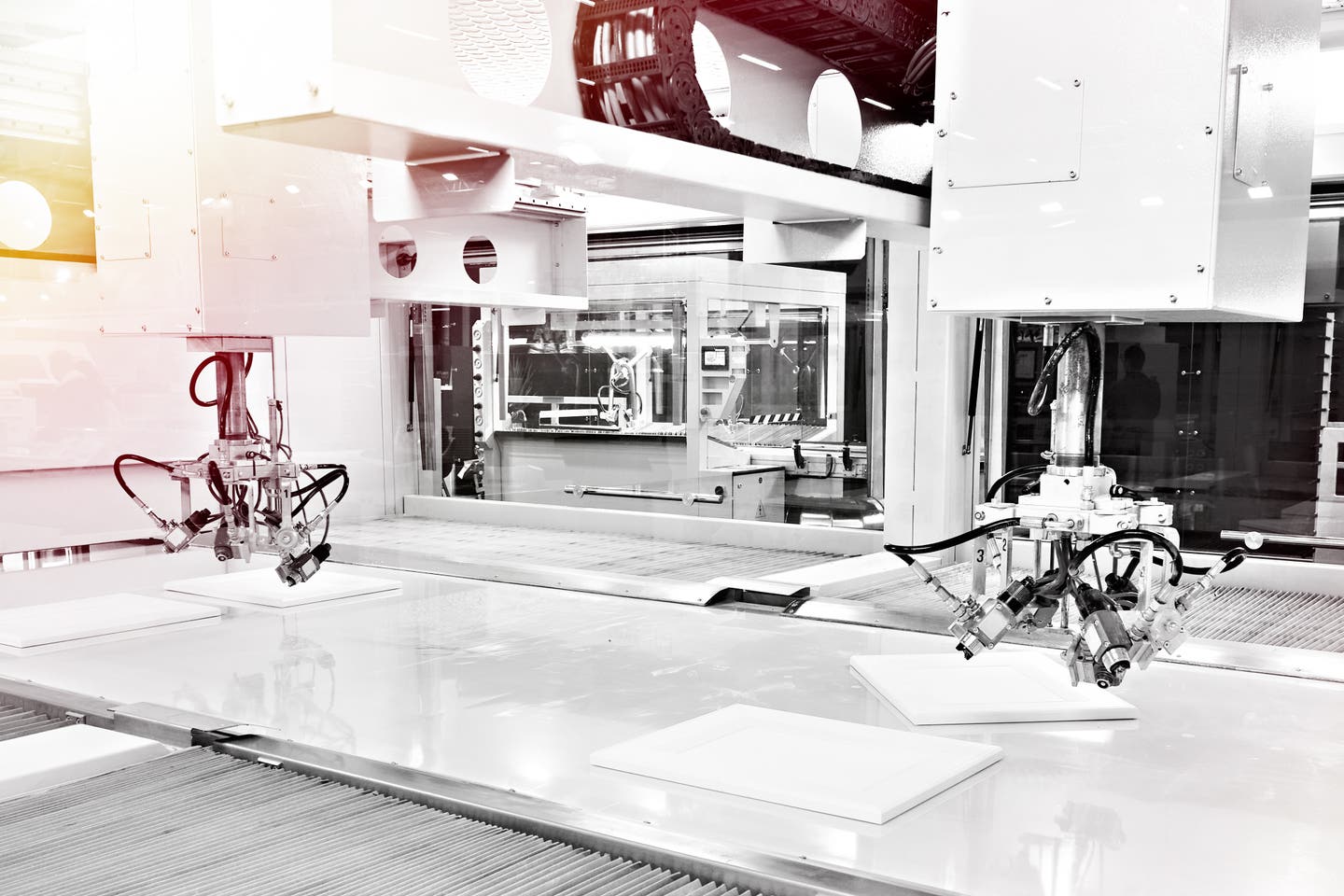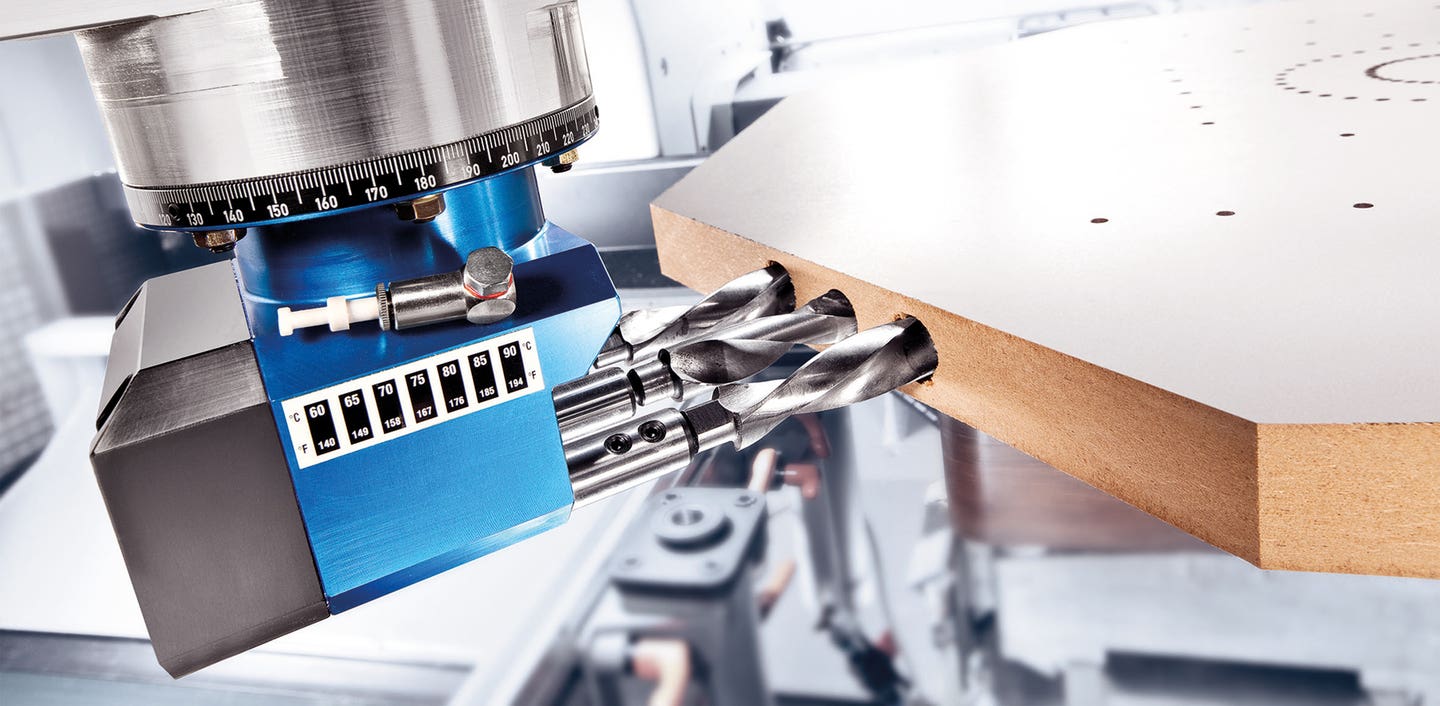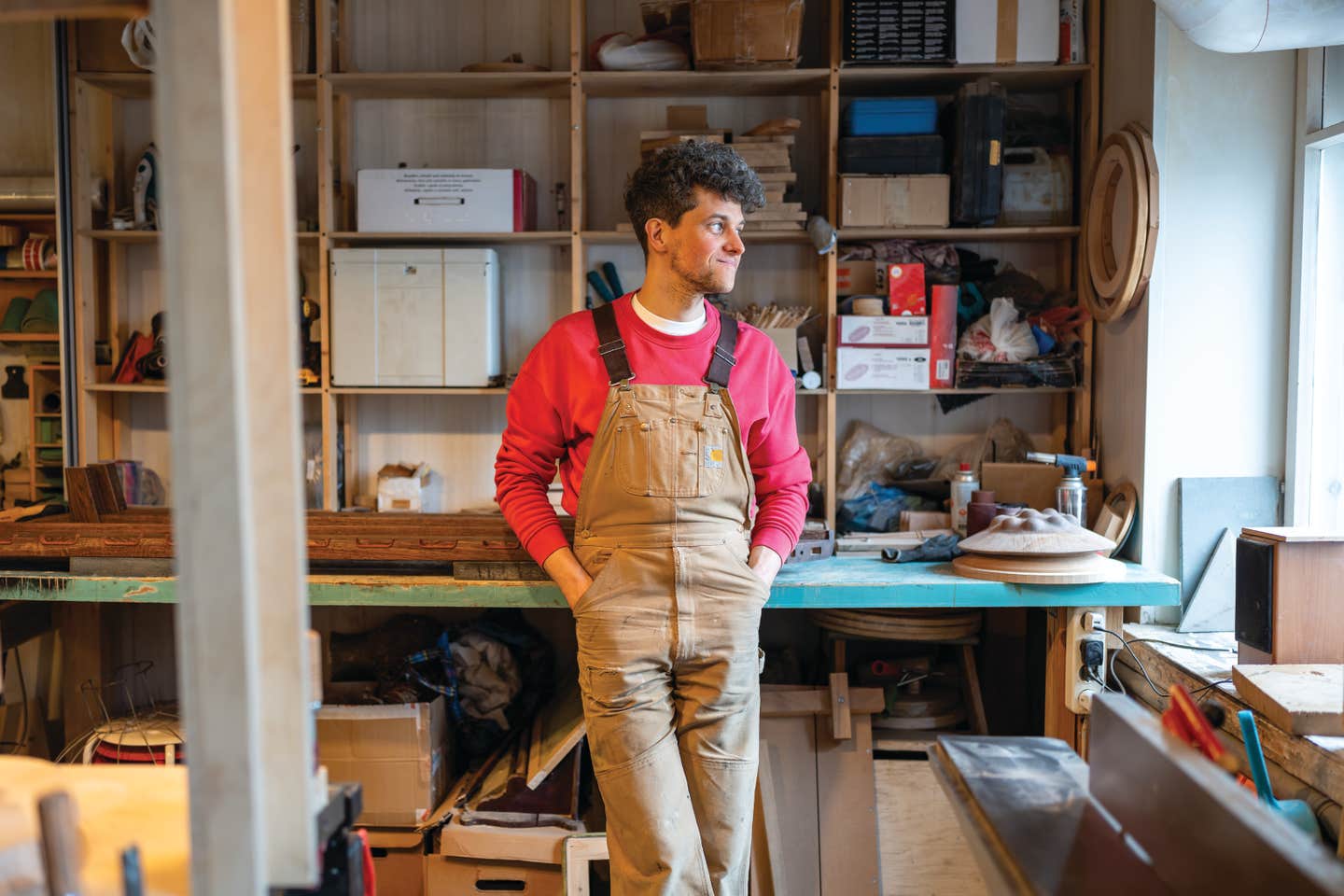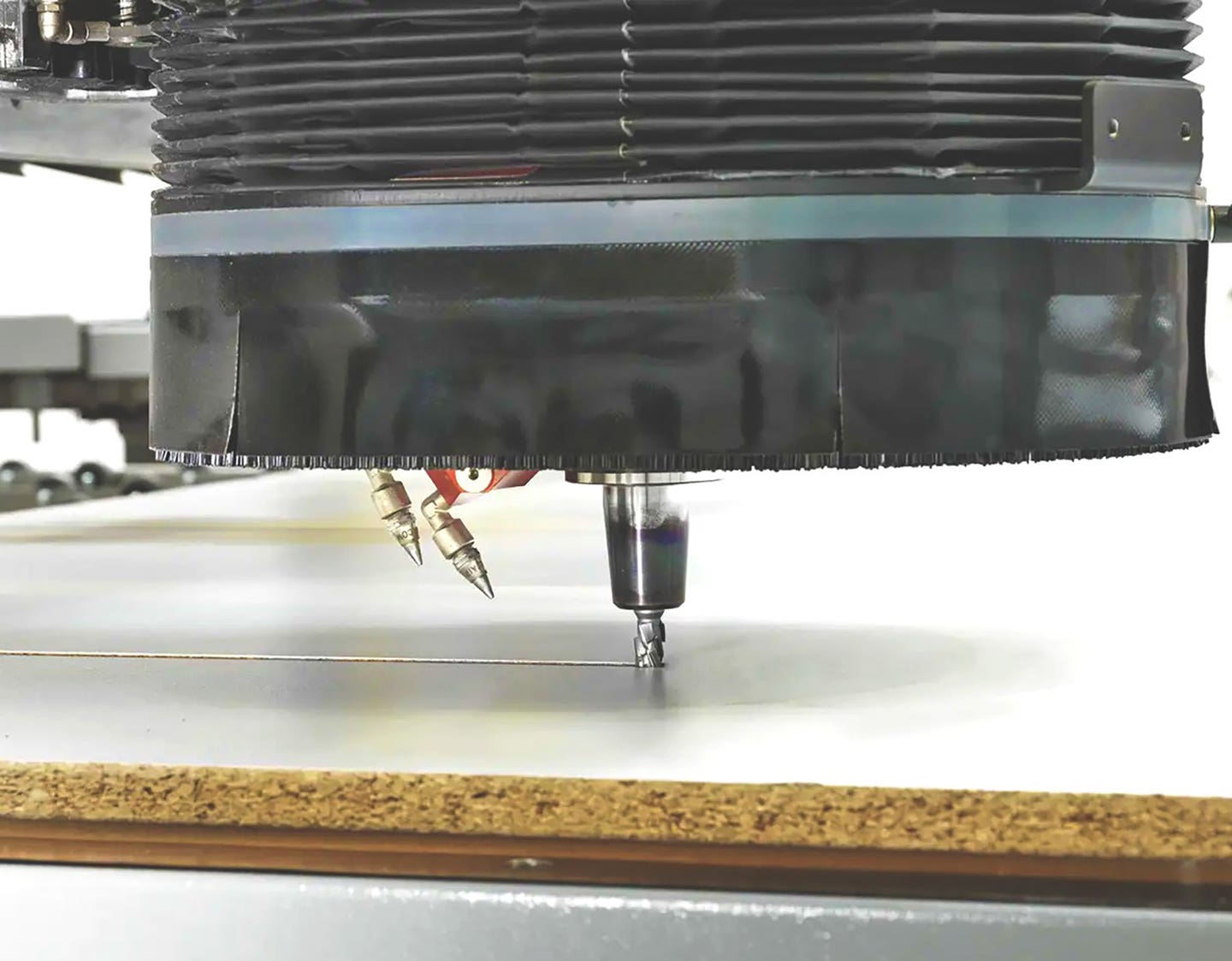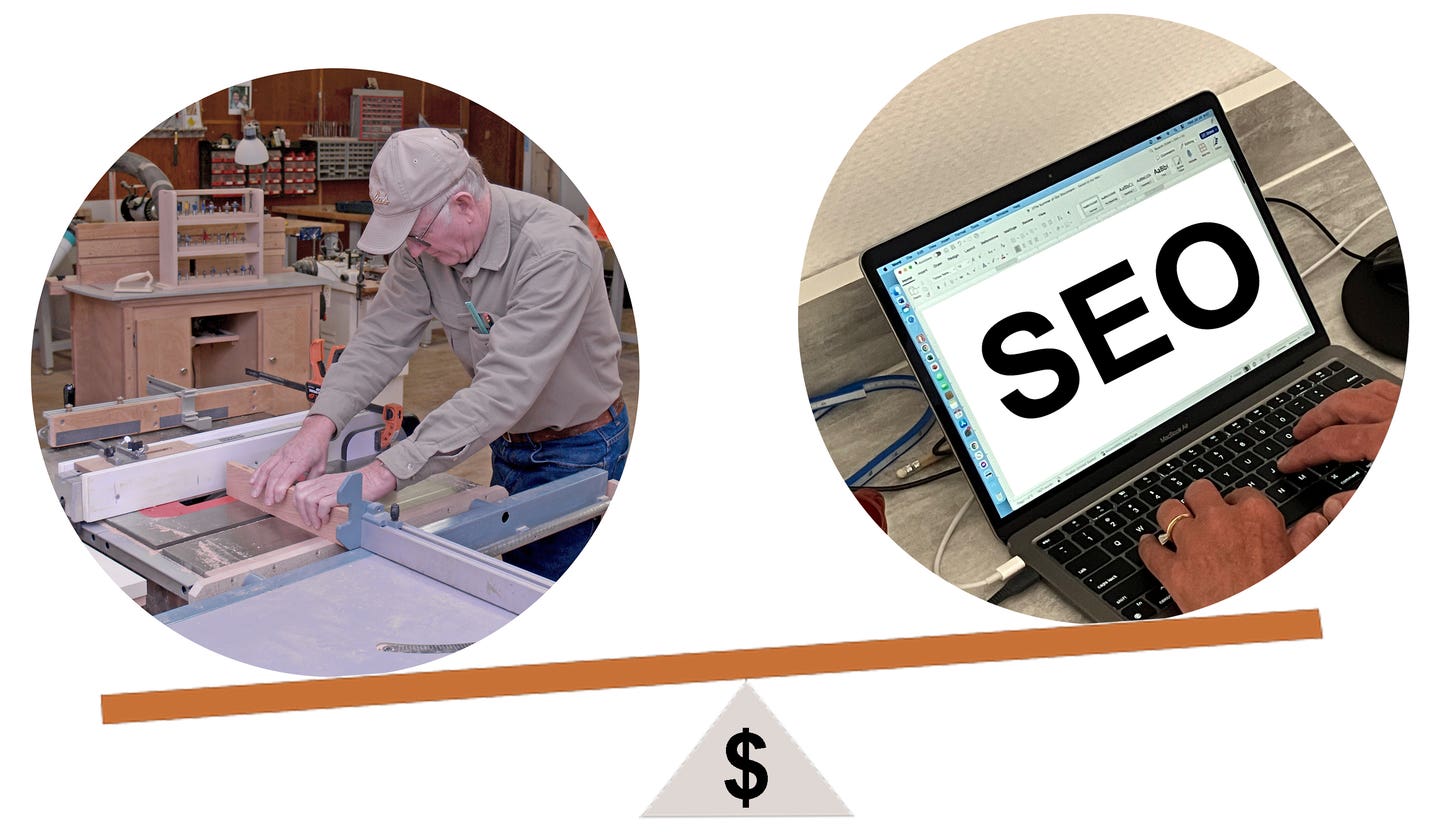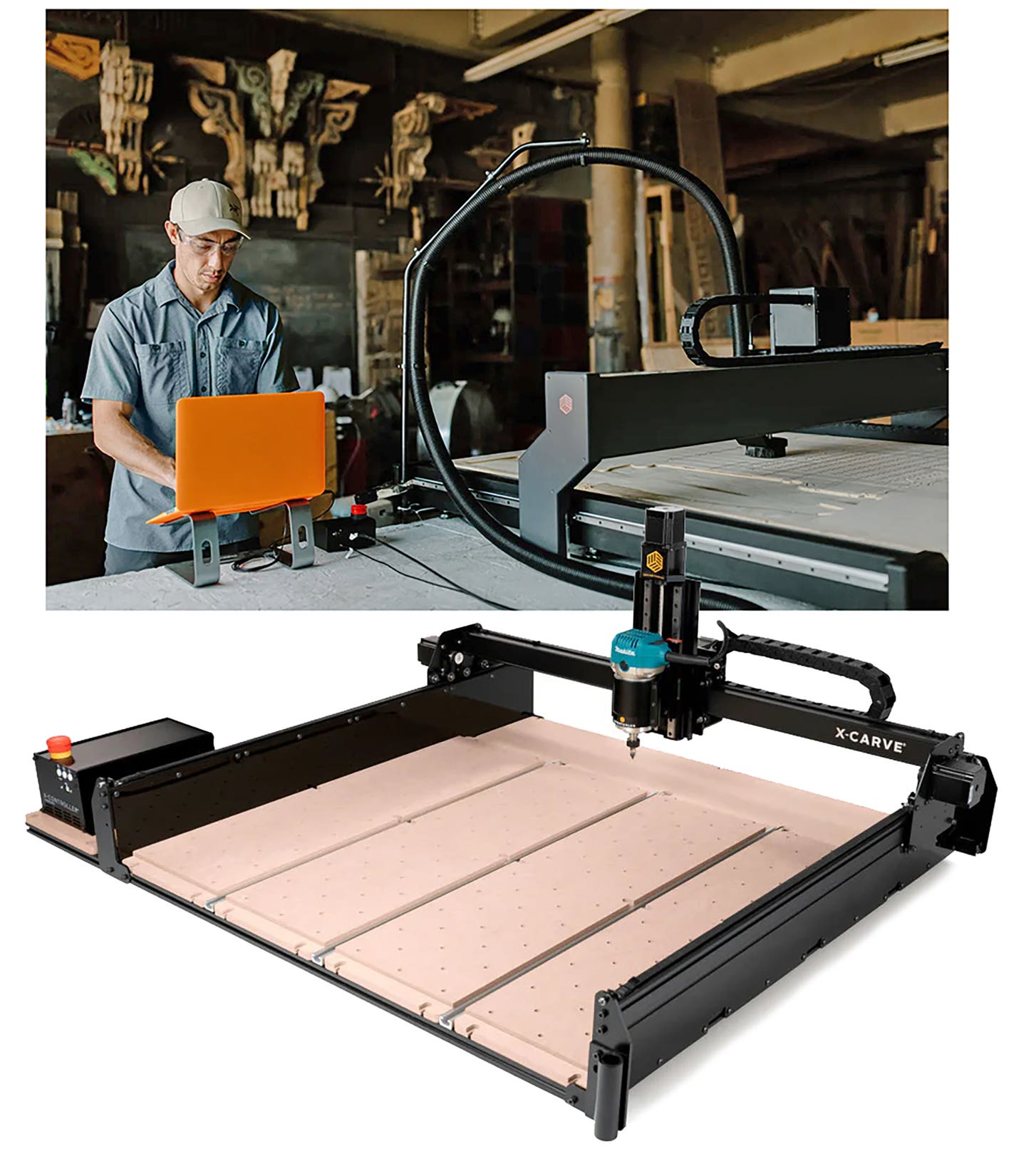Balancing act
With a mix of vintage machines and dedicated setups, New England Joinery Works in Essex, Conn., can quickly produce custom millwork, doors, windows, flooring and more in its spacious 12,000-sq.ft….
With a mix of vintage machines and dedicated setups, New England Joinery Works in Essex, Conn., can quickly produce custom millwork, doors, windows, flooring and more in its spacious 12,000-sq.ft. shop. Curved millwork is the shop’s specialty, which is often made from PVC products.
Hands-on owners Matthew Ouellette and Peter Leffingwell started the business in 1988 after working together at a shop in Newington, Conn. They’ve set up shops in buildings that once processed eggs and built pianos before moving to their current location — where pallets used to be made — in 2008. Unfortunately, that’s about the time the economy went in the tank.
“It’s been very slow over the past five years and we’re sort of getting back to normal now,” says Leffingwell. “Profit margins have decreased in this industry. It’s tougher and tougher to get the job because competitors will sell themselves short. We’ve found that we don’t have to do that by remaining diverse in what we do. We take on the strange things that others shy away from.”
This includes interior and exterior trim packages, casement windows, double-hung windows, sliding and swinging patio doors, entrance doors, radius and geometric windows and more. Many projects are done for waterfront homes and are specially designed to withstand hurricane-force winds and flying debris.
“We don’t have any stock product that we just produce here and sell. We sell stock materials, but they’re not made here. Anything we make here is generally a one-off, one-of-a-kind type of thing,” says Ouellette.
Retail and custom
New England Joinery Works carries a wide selection of building products — Kolbe windows, Rogue Valley doors, Masonite doors, Lamuix doors and Garden State moldings — and hardwoods for contractors and homeowners. Customers can drive inside a 9,000-sq.-ft. warehouse, load up and be on their way.
“We do sell a certain amount of stock products, but primarily we manufacture custom millwork to order with moldings to match. We do lots of curved work, especially with PVC. That make up about a third of our business and it’s taken over the wood,” Leffingwell says.
Ouellette adds, “This might not be appealing to hardcore woodworkers, but a lot of what we do is in PVC plastic, which mills the same as wood basically, but it holds up differently in the weather. It’s a new alternative to wood. It does cost a little bit more than some woods and you have a known waste factor that helps make it more affordable to do millwork with.
“A lot of times what happens is someone comes in with a rotten artifact from a historical building or something and asks us to reproduce it in wood or in PVC plastic. We did the steeple of the Clinton (Conn.) town hall a few months ago and that was all out of PVC. That’s really the type of thing we do. We also make custom moldings, crown moldings for exterior trim, storm windows, shutters, a lot of fencing, railings and more.”
Local clientele
Currently, about 80 percent of work is done for homes with an average value of more than $1 million.
“Our clientele developed mainly by word of mouth,” says Leffingwell. “We’ve never advertised and we don’t really have a road salesman, so to speak. Our geographical coverage area is a two-hour radius that includes Greenwich to Long Island to the Stonington area. Most of our work is done in Middlesex, New London, Hartford, and Fairfield counties. Typical clients are high-end residential contractors and lots of local homeowners.”
Ouellette explains that the company doesn’t do marketing because it has a good reputation for handling unique projects. This is what distinguishes them from competitors, which are generally other lumberyards with limited millwork shops.
“People generally come to us with an object and ask us to make them something or come to us with something that an architect has designed and say they can’t go to Home Depot and buy it. That’s our little niche. And curved work is really our specialty too. Curved trim, curved moldings, curved windows, curved doors, archways, those are what set us apart from competitors,” says Ouellette.
Commercial work has come from institutes of higher education — including Sacred Heart University in Fairfield, Conn. and Wesleyan University in Middletown, Conn. — and local municipalities.
Some designs are drafted in-house, but architects generally provide the plans. As for material preferences, poplar, Spanish cedar and sapele are in demand. The company subs out its installation needs and does not do any finishing as there are usually painters on site for each project. These are some of the ways they keep operating costs to a minimum, along with keeping existing machinery well-maintained to eliminate the need for purchasing anything new.
“We try to keep our overhead done as much as we can. We don’t have any CNC equipment and things are pretty low-tech here. Some of our equipment here is very old, but still going strong,” says Leffingwell.
Machinery includes a Buss planer; TimeSaver sander; SCM Minimax joiner; Northtech SRS-12 straight-line rip saw; Wadkin five-head molder and profile grinder; American band saw; Frommia over-arm router; Powermatic table saw and tenoner; Crescent hollow chisel mortiser; Dario articulated band saw; Sand Pro downdraft table; Kraemer dust collection system with return air and Ingersoll Rand air compressor.
“Really, our plan over the past few years has just been simply to stay in existence. Everything keeps going up, from workers’ comp insurance to the cost of doing business in general. We are constantly presented with the challenge of balancing between making money and giving a fair price so people feel they’re getting value,” says Leffingwell.
Contact: New England Joinery Works Inc., 19 Bokum Road, Essex, CT 06426. Tel: 860-767-3377. www.newenglandjoineryworks.com
This article originally appeared in the June 2013 issue.


